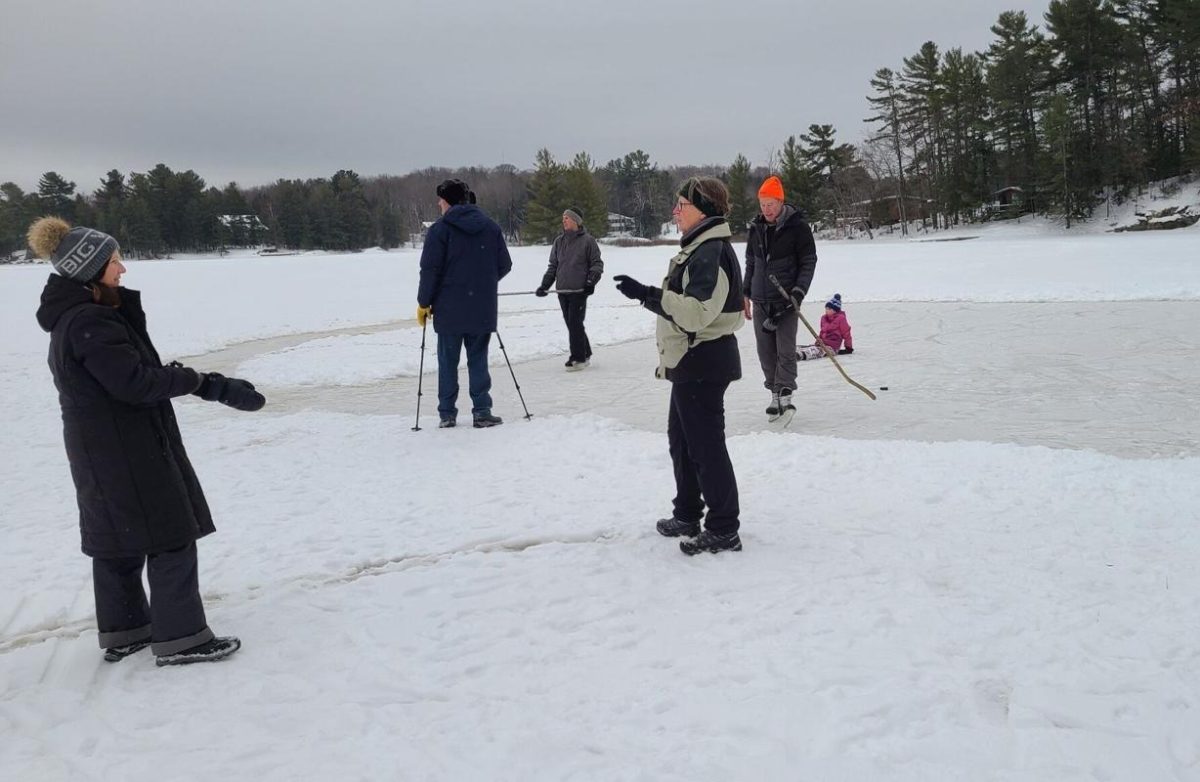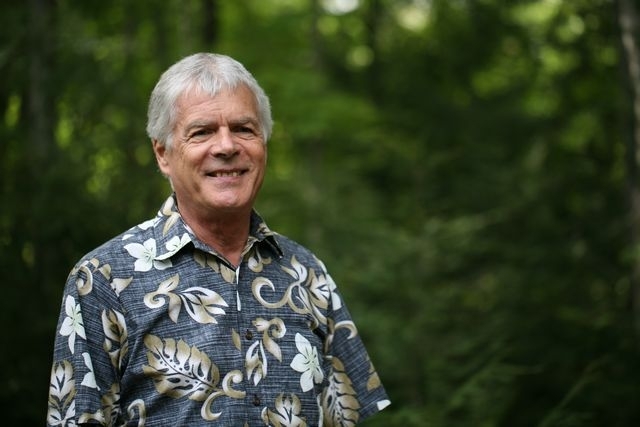Less ice cover in Muskoka impacts winter sports and could mean ‘more dried up wetlands and streams’
There are ecological consequences fewer days of ice cover.
By Dr. Peter Sale.

The 2023 Muskoka Watershed Report Card says climate change is lengthening the open water season in Muskoka lakes. Ice covers lakes later in winter (sometimes not until January, as we have seen this winter) and disappears earlier in spring than in the mid-1970s. These changes mean we now get about 20 days more open water than we did back then.
But what are the implications of these changes?
Obvious for most of us will be reduced opportunities for snowmobiling, skating across frozen lakes, ice fishing and ice roads to transport construction materials to island properties. The ecological consequences, however, could be far more important.
A warmer climate will raise water temperatures directly, but a longer open water period means more time for lakes to warm, as well as a longer growing season for aquatic algae, plants and animals. Less ice cover also means more time for evaporation of water from lakes, meaning, potentially, that there will be less water flowing through lake and river systems, greater differences between spring and fall lake levels, and more dried up wetlands and streams.
Each of these simple consequences will lead to other changes. Some of these get a bit complicated. With lakes becoming warmer, stratification of the water will become stronger, more persistent into fall. We all experience stratification when we go swimming in early summer and discover that the water down by our legs is a lot colder than the water at the surface.
Stratification occurs because the lake is being warmed from the surface; warm water is less dense, and floats on top of colder water. Stratification keeps the colder deeper water sealed off from any contact with the atmosphere from early-summer through to fall, and this condition will be more persistent. The oxygen dissolved in that sealed-off deeper water is gradually depleted by the respiration of organisms living there. Such oxygen depletion will become more extreme in longer open water seasons. Deep lakes that used to contain sufficient oxygen over the summer could now become severely depleted, such that deep water species like lake trout are likely to disappear from some of our smaller lakes.
The stronger stratification, and resultant depletion of oxygen, also lead to resuspension of phosphorus trapped in sediments below the lake. This resuspended phosphorus then becomes available to organisms like blue-green algae. A longer growing season and a late flush of phosphorus might be just what they need to produce an algal bloom in lakes that have never bloomed in living memory!
More generally, a longer growing season, warmer water and changed water chemistry will impact the growth of populations of many aquatic organisms, and the extent of these impacts will differ from one species to another. These changes in population growth can therefore change the ways in which aquatic populations interact. There may be more grazing on algae by more abundant zooplankton, or algae might be so abundant that the grazing that used to control their numbers is now insufficient.
There may be more zooplankton to feed fish, and therefore more, bigger fish; or there might be fewer zooplankton and fewer fish. Longer growing seasons and increased evaporation are new to our Muskoka experience — while scientists can anticipate many of the complex consequences, it remains to be seen how serious each of these consequences may be.
All because there is less winter ice.

This is the eighth in a series of articles from Muskoka Watershed Council on “The State of Our Watershed” on MuskokaRegion.com. Each explores environmental issues and management challenges revealed in our 2023 Muskoka Watershed Report Card.
Series editor and this week’s contributor is Dr. Peter Sale, a marine ecologist retired from academia and a Muskoka resident since 2006. Peter is the current Chair of the Muskoka Watershed Council.
